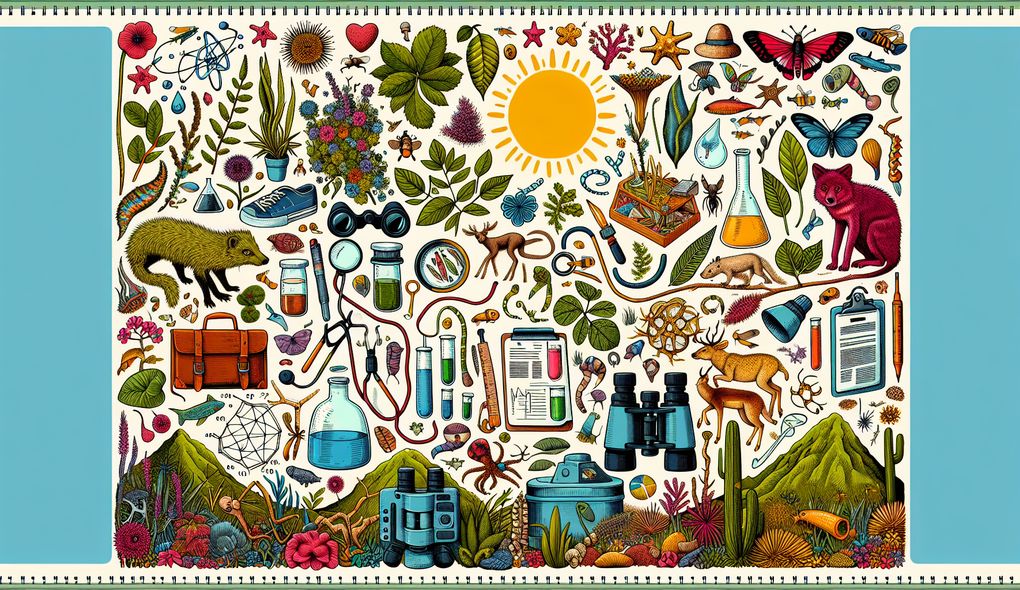Tell us about a time when you had to manage a project with limited resources. How did you prioritize and optimize resource allocation?
SENIOR LEVEL

Sample answer to the question:
One time, I had to manage a project with limited resources when I was leading a research study on endangered bird species. We had a tight budget and a short timeline, but I knew that optimizing resource allocation was crucial for the success of the project. To prioritize, I focused on allocating resources to areas that would have the biggest impact on the study. I also made sure to communicate with my team and stakeholders regularly to identify any potential resource constraints and find creative solutions. For example, instead of hiring additional staff, we collaborated with local universities and engaged student volunteers who were passionate about conservation. This allowed us to utilize their skills and enthusiasm while staying within our budget. Overall, it was challenging, but by prioritizing and optimizing resource allocation, we were able to complete the project successfully.
Here is a more solid answer:
I had the opportunity to manage a project with limited resources when I was leading a team conducting a forest restoration project. With a limited budget and a large area to cover, effective resource allocation was crucial. To prioritize, I performed a thorough analysis of the project requirements, considering factors such as the importance of different areas for biodiversity conservation and the level of degradation. This allowed me to identify priority zones for restoration efforts. I also optimized resource allocation by leveraging partnerships with local conservation organizations and engaging community volunteers. By involving the local community, we were able to stretch our limited resources while fostering a sense of ownership and sustainability. Additionally, I implemented data-driven decision-making, regularly collecting and analyzing data to assess the impact and effectiveness of our resource allocation strategies. This enabled us to make adjustments and ensure the most efficient use of resources throughout the project.
Why is this a more solid answer?
The solid answer expands on the basic answer by providing more specific details and examples of how the candidate managed a project with limited resources. It emphasizes the candidate's role in analyzing project requirements, optimizing resource allocation through partnerships and community engagement, and using data to make informed decisions. However, it could still benefit from showcasing the impact and outcomes of the project or the candidate's leadership in managing the project.
An example of a exceptional answer:
I encountered a challenging project with severely limited resources when I took on the role of project manager for a conservation initiative in a remote island ecosystem. Our goal was to establish a marine protected area to safeguard endangered coral reefs and marine species. To optimize resource allocation, I implemented a strategic approach. First, I conducted a thorough needs assessment and identified the most critical activities and areas requiring immediate intervention. I then collaborated with local communities, forming partnerships with fishermen and tourism operators, to leverage their knowledge and existing infrastructure. This allowed us to mobilize resources without incurring significant costs. Additionally, I actively pursued grants and secured funding from international donors to supplement our limited budget. I also encouraged knowledge sharing and capacity building among team members to maximize their potential. Through effective resource prioritization and creative optimization, we successfully established the marine protected area, which has since become a model for sustainable conservation efforts in the region.
Why is this an exceptional answer?
The exceptional answer goes above and beyond by providing a detailed example of managing a project with severely limited resources. It showcases the candidate's strategic approach, collaboration with local communities, successful grant acquisition, and the long-term impact of the project. The answer demonstrates exceptional skills in resource allocation, problem-solving, collaboration, and leadership. The only area for improvement could be providing more specific data or metrics to quantify the impact of the project.
How to prepare for this question:
- Reflect on past experiences where you faced limited resources in a project management role. Identify the challenges you encountered and how you addressed them.
- Consider examples of effective resource prioritization and optimization. Think about the strategies and decisions you made to allocate resources efficiently.
- Highlight any successes or achievements resulting from your resource allocation strategies. Prepare specific outcomes and quantifiable data, if available.
- Practice storytelling to effectively communicate your experiences. Focus on the key details, emphasizing your role in managing the project and the impact of your resource allocation decisions.
- Research and familiarize yourself with the specific resource limitations often faced in conservation biology projects. Stay updated with case studies and best practices in resource allocation in the field.
What are interviewers evaluating with this question?
- Project management
- Resource allocation
- Problem-solving
- Collaboration
- Leadership

